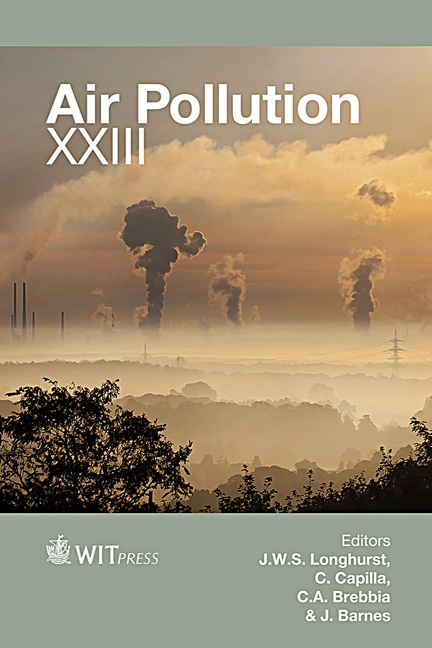Fate Of Aqueous Iron Leached From Tropospheric Aerosols During Atmospheric Acidic Processing: A Study Of The Effect Of Humic-like Substances
Price
Free (open access)
Transaction
Volume
198
Pages
12
Page Range
155 - 166
Published
2015
Size
408 kb
Paper DOI
10.2495/AIR150131
Copyright
WIT Press
Author(s)
J. Borgatta, J. G. Navea
Abstract
Humic-like substances (HULIS) are complex organic molecules that can be found in the atmosphere as components of tropospheric aerosols or suspended in atmospheric water. HULIS are chelating agents and oxidation-reduction species, therefore these substances can affect the availability of aqueous iron, a heavy metal commonly leached from atmospheric particulate matter upon acidic processing. Specifically, chelating properties allow HULIS to remove aqueous iron from atmospheric water, while their redox properties can alter iron speciation. Ultimately, wet deposition of soluble iron can be influenced not only by HULIS but also by other ubiquitous atmospheric cations. In this work, we investigate the effect of HULIS on iron leached from atmospheric particles in the presence of aluminium ions, an environmentally abundant cation also chelated by HULIS. Colorimetric methods were used to examine the cation exchange (CE) of aluminium ions with both iron (II) and (III) ions in humic acids, a model system for HULIS. An effective chelation of aqueous phase iron with humic acids was observed during suspension experiments, with aqueous iron removed from aqueous phase into a HULIS complex. In addition, the redox properties of humic acids showed no oxidation of iron (II) after chelation by humic acid, but a fraction of iron (III) was reduced into the more bioavailable iron (II). Cation exchange with aluminium suggests that bioavailable iron (II) ions chelate with HULIS in a combination of exchangeable and inexchangeable iron, with a higher proportion of exchangeable iron incidence. Additionally, HULIS interaction with iron (III) ions shows chelating properties as well a reduction potential, producing aqueous and chelated iron (II) ions.
Keywords
humic-like substances, cation exchange, iron mobility, chelation





